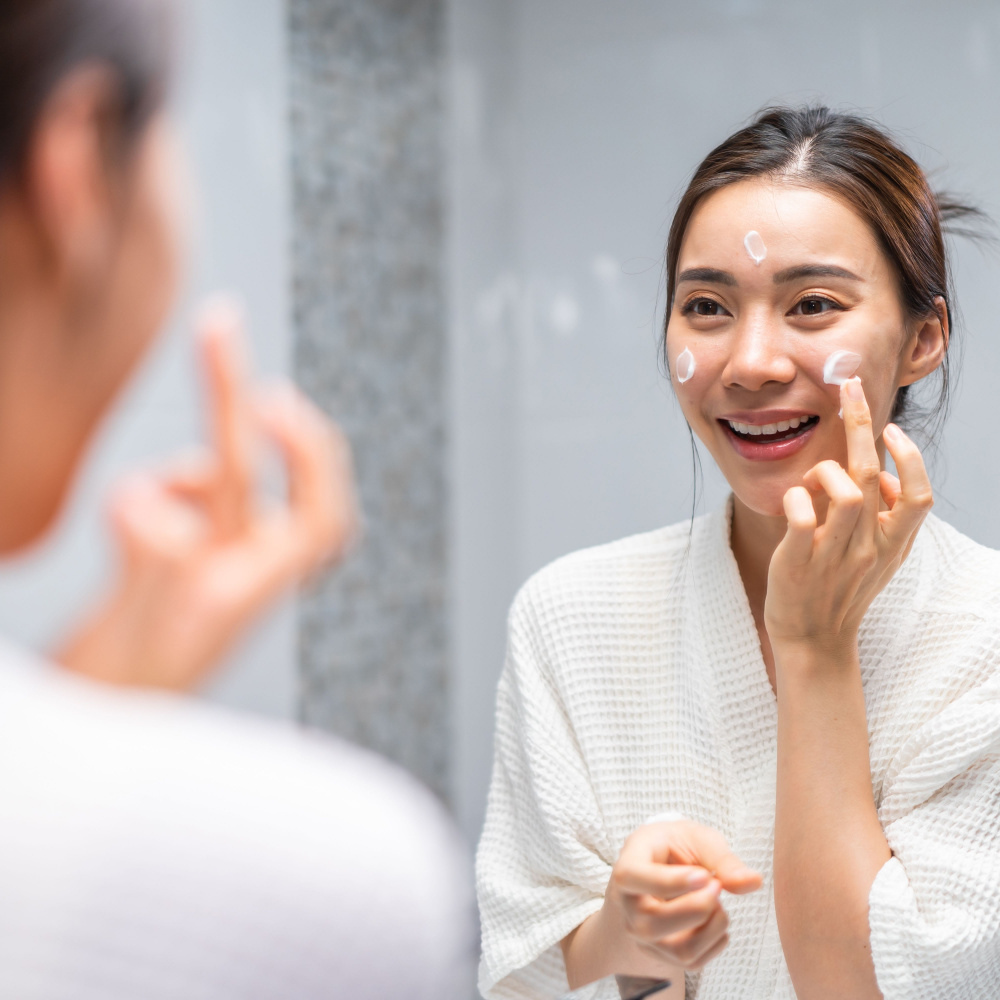
The winter season is a favorite among all the seasons. However, this season is one of the hardest for skin and hair. Winter demands some extra care for the skin. Maintaining a healthy winter bath care regime is helpful in preventing dryness of the skin and maintaining overall hygiene, especially for individuals with certain medical conditions. Consistent cleansing helps in managing conditions like eczema or acne, leading to healthier skin [1].
Join us, as we unravel the secrets to a winter bathing regime that leaves the skin feel warm, glowy, and ready to face the chilly adventures ahead.
Give your skin all the tender love and care with our exclusive range of products for vibrant and healthy-looking skin. Shop Now
Several studies have shown that bathing imparts many health benefits apart from the obvious cleanliness it promotes. According to a study individuals who bathe with warm water every day tend to stay stress-free and sleep better [2].
While bathing has so many benefits, many people tend not to take a bath often during the winter season. This practice can be both unhygienic and harmful to the health, so it’s best to stick with healthy bathing practices even during the winter season. The following are some essential bathing tips you absolutely need during this winter:
1. Avoid Hot Showers
Taking a bath with the right temperature water matters a lot. The skin is a reservoir of healthy microbes and the skin pH is maintained by them. Taking hot showers during winter can destroy these healthy microbes, and can harm the skin, leading to dryness and discomfort [3]. Therefore, bathing with lukewarm water or slightly warm water only keeps the skin supple and hydrated.
2. Moisturize Right After Shower
Nothing is perhaps as important during winter as moisturizing. Make it a ritual of moisturizing the face and body right after the shower. It is ideal to store the moisturizer or cream in the bathroom so that you can use it right after wiping yourself. The warm water helps open up your pores, making this the ideal time for the skin to absorb and retain the hydration from the moisturizer.
Many people choose to apply glycerine during winter, which can also help lock the moisture of the skin. Therefore, glycerin is a major constituent of many moisturizers [4]. You can also apply herbal or natural moisturizers like olive oil, and coconut oil, on the skin to moisturize it.
Still wondering about the right moisturizer. Explore our widest range of moisturizers. Buy Now
3. Skip Soaps
When picking a cleanser for your bath routine in the winter, make sure that it is soap-free. Soaps, especially the traditional ones, can be harsh and strip the skin of its natural oils, leading to dryness and irritation. It is also essential to go for something that is ultra-hydrating while cleansing. Using hydrating shower gels with ingredients like shea butter or glycerin can help retain moisture and prevent winter skin woes.
4. Cream-Based Face Cleanser
Cold winter winds can easily rob the moisture content of the skin leading to dry and flaky skin. Cold temperatures and low humidity also lead to the loss of essential oils from the skin. Hence, it is essential to use a face cleanser that not only retains moisture but also does not strip away the natural oils.
Hence, unlike summer when gel-based cleansers work best, one must opt for milk- and cream-based face cleansers in winter. Not only do they lock in moisture in the skin, but they also nourish it and replenish the oil content in the skin.
5. Exfoliate, But Not Too Much
The winter season invariably means dry skin, with more flakiness and dead skin cells. This makes it a necessity to exfoliate both the face and the body regularly. For the body, a DIY coffee scrub can be used to nourish the skin. For sensitive skin, a chemical exfoliator could be opted for the face. But to maintain the health and radiance of your skin, exfoliation in the winter season is necessary.
To avoid overdoing it, exfoliate once a week. Use a gentle scrub to maintain a healthy winter glow without stripping essential moisture.
6. Wear Sunscreen Every Day
The winter season can be very deceptive, because it may lead to believe sun protection is not required. The UV rays of the sun can be just as damaging even in the winter season. Make sure to protect the face and all the exposed parts of the body by wearing a good SPF sunscreen every time you step out [5]. It is well said, “Make SPF your BFF” and use it all the time and seasons, the moment you get out of the house.
It’s better to protect the skin from the harmful devastating effects of UV rays. Check out our extensive range of sunscreen products. Explore Now
Winter often demands extra care and attention for the skin. Follow these simple bathing care regimes to make your skin winter-friendly. However, if you are still facing issues related to skin
(The article is written by Simran Suri, Assistant Team Lead, and reviewed by Monalisa Deka, Senior Health Content Editor)
References
1. Mijaljica D, Spada F, Harrison IP. Skin Cleansing without or with Compromise: Soaps. National Library of Medicine.[Updated 2022].
Available From: https://www.ncbi.nlm.nih.gov/pmc/articles/PMC8954092/
2. Goto Y, Hayasaka S, Kurihara S, Nakamura Y. Physical and Mental Effects of Bathing: A Randomized Intervention Study. Evid Based Complement Alternat Med. National Library Of Medicine. [Updated 2018].
Available From: https://www.ncbi.nlm.nih.gov/pmc/articles/PMC6011066/
3. Winter Skin Care Tips for Preventing Dry, Cracking Skin.University of Colorado Health (UC Health).[Updated 2021].
Available From: https://www.uchealth.com/en/media-room/articles/winter-skin-care-tips-for-preventing-dry-cracking-skin#:~:text=Long%2C%20hot%20showers%20can%20feel,can%20excessively%20dehydrate%20the%20skin.
4. Chen HJ, Lee PY, Chen CY, Huang SL. Moisture retention of glycerin solutions with various concentrations: a comparative study.National Library Of Medicine. [Updated 2022]
Available From: https://www.ncbi.nlm.nih.gov/pmc/articles/PMC9205919/
5. Sunscreen in the winter? National Library Of Medicine. [Updated 2023].
Available From: https://magazine.medlineplus.gov/article/sunscreen-in-the-winter